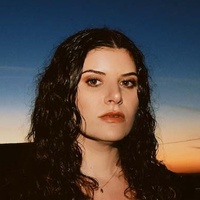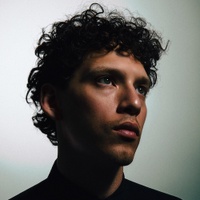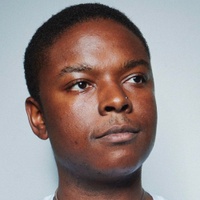As told to Shelby Hinte, 2454 words.
Tags: Music, Inspiration, Identity, Failure, Mental health, Success.
On silencing your inner critic
Musician Bethany Cosentino (Best Coast) on reinventing yourself at any age, the value of journaling, and being intentional in what you do.How do you get to a place where you can be so honest in your music?
It doesn’t really feel like a choice. When I sit down to write, whether it was Best Coast or Bethany, whatever it is, it’s all me. At the end of the day, I feel like something just comes out of me. I oftentimes feel like creativity, particularly songwriting, is a very spiritual experience that I don’t even really understand. In the beginning I used songwriting as a confessional, almost diary-like experience, to discuss what I was feeling and things that I don’t think I even really understood at the time. I can’t really tell you how I even do it. It just feels like it happens.
Do you have a regular practice for when you go into songwriting or a way that you kind of tap into that more spiritual place that you feel songwriting comes from?
I think in the past it always kind of felt random because I did not have any sort of connection to a spiritual side of myself. My intuition has always led me, and I’ve always followed it. When I started Best Coast, I was like, I’m just going to drop out of school and I’m going to go home and start a band. And it worked for me.
I would say that with [Natural Disaster], I did approach it in a more conscious way where I would go for a walk and ask, “What am I connecting with?,” “What is happening in the world right now?,” “What do I feel that I need to say?” I was a lot more intentional this time around.
I’m drawn to artists who have this fuck it mentality of “I’m going to drop out of school and see if I can make it as a musician.” And now you’re kind of doing that again in some ways going solo. How do you confront that fear of trying something new that doesn’t have any guarantees as an artist?
Having this connection to intuition has allowed me to have a fuck it mentality. It is just like, I don’t care. I’m going to do this. The funniest part is that I’m actually wildly insecure. My inner critic is at 100, and is so fucking mean to me all the time. I have such a duality within myself where it’s like I am both this insecure person who struggles with imposter syndrome, but at the same time, I’m this person that’s like, I don’t care. I’m just going to do the thing and it’s either going to work out or it’s not going to work out.
Obviously at the end of the day, the goal is that it works out, but I know that I know myself well enough, and that I’m a resilient person, and that if all fails, I will figure out what to do. I have always figured out what to do. So whenever I really start beating myself up, I try to remember it’s the amount of risk that I’ve taken in my life that has always led me to exactly the right place.
What are some ways that you handle that inner critic as an artist?
I think with Best Coast, my inner critic was the narrator of the story. I channeled the inner critic and put all of the angst and all of the distrust and all of the emotion onto the page and into the songs because I didn’t have anywhere else to put it. I was writing songs as a form of survival because I felt like it was how I made sense of what was going on in my life. And now I feel like I make music for the experience of creating art. I’m still evaluating my thoughts and my feelings and the world around me and figuring out stories to tell, but I approach it in a really different way now. It’s a lot more intentional. I journal a lot. I take long walks. I sit in my car for a very long time. My car is kind of my meditative space. Now that I have these practices, I’m able to deal with the more personal attacks of the inner critic, and the ones that feel worth sharing end up in the storytelling. But I’ve gotten a lot better at having boundaries with what I’m willing to share and what I’m actually like, “Okay, I think I’m going to keep this one just for the therapist’s office.”
I teach a creative process class for writers, and I used one of your recent tweets in class:
I thought it was so funny. And a lot of students were trying to figure out their journaling practice and could relate. I’m curious to hear what your own journaling practice looks like and how that influences your songwriting.
I love that you used that because it really was the light bulb moment for me. I will go long stretches of time without journaling and long stretches of time without checking in with myself. And then I start to feel myself cracking and I’m like, the world is collapsing around me. My life is awful and I’ve amounted to nothing, and I just go down into this deep rabbit hole of failure, failure, failure. Then I remember it’s as simple as taking a pen to a piece of paper and sitting at my desk.
I try to do three pages because I try to follow [The Artist’s Way] morning pages practice, although it doesn’t always start off my day, but I try to sit in the morning and write stuff out. I just sit down, write, and I don’t read it back. I have a lot of revelations through journaling. I try to do it very stream of consciousness, but sometimes I’ll connect with something that I’m writing and I’ll have this moment where I’m like, Oh, that’s a really interesting thing that I’ve never thought of before. Then I’ll either take it to therapy or I’ll explore it more on my own. I find that the chatter in your head has to go somewhere. If it’s not going to go in a song, or a script, or a book, or whatever your creative art form is, it can’t live in your head because it’s going to convince you that you’re a failure.
Could you talk about some of your influences or intentions with the new solo album?
I grew up in a very creative home where music was a huge part of everything. My mom would listen to Carole King, Joni Mitchell, Linda Ronstadt, and Fleetwood Mac. I tried to tap into the influences that felt connected to my girlhood. I think it was a big exploration of my own femininity because there’s a lot of softness on this record. There’s a softening of me as a person on this record. My parents are both from the Midwest, so I spent a lot of time in the Midwest as a kid listening to ’90s country, listening to the radio, listening to every Chick’s album, and knowing all of those songs by heart, but I couldn’t really use those influences with Best Coast. So it was exciting for me to get to tap into all these different worlds that I’ve never really been able to.
How much does place or space influence your writing and your art making?
I think that for Best Coast, it was obviously so pinpointed to California and to Southern California, in particular Los Angeles. I made the majority of [Natural Disaster] in Nashville. So I left California and it was the true hero’s quest. I had an acoustic guitar on my back getting on the plane by myself, just like 19 other people all going to Music City to make our dreams come true.
My inner critic really thrived there. One thing I will tell you is, Nashville, Tennessee is a place that is filled with people who are so fucking talented. I’m not a traditional guitar player. I know power chords, and I’m now taking lessons and learning to play in a different style, and I’m working really hard at trying to evolve as a musician, but I would be in these rooms with these people who were these legendary session musicians. I was sitting there thinking I don’t deserve to be in this room. I’m just a girl who grew up on punk. I shouldn’t be here. But it also was really helpful for me because I would have these conversations with myself where I would be like, No bitch, you deserve to be here. Because if you didn’t deserve to be here, you wouldn’t fucking be here. These people wouldn’t be coming in and playing on your record. You wouldn’t be working with a producer like Butch Walker.
And it was a real muscle building experiment for me. I think that there was a lot of opportunity for me to build up strength and confidence in a way that I’ve never really had the opportunity to do in Los Angeles. This was about me allowing myself to get out of the place where I was comfortable to go be uncomfortable somewhere else.
I think your last album with Best Coast, Always Tomorrow, felt like there was so much maturity and looking at things through a different lens than that of a person in their early twenties. You talked a bit about sobriety on that album. How did sobriety change your relationship to making music and being an artist?
I think for me, sobriety was always about searching. The thing that I don’t think I really realized at that time was that I saw sobriety in this very black and white way where it was like, okay, you stop doing certain substances, you start working on yourself, and then all of a sudden life gets better and it’s just like you take away the thing and then everything works and everything is fine. And the funny thing is that after that happened, after that record came out, COVID happened, and I had a real moment with myself where I was like, wait a second, I am doing the exact same thing I’ve always done, which is identifying so much as one thing that I’m not looking at all of the other stuff.
For me, it has always been a thing where the real problem was I did not know how to detach from other people. I was addicted to chaos, and I was addicted to people. Something that happened by way of sobriety is I got to sort of reclaim myself and reclaim my life. I was talking to somebody recently about this record who said, “This record feels like you are the main character for the first time in any record you’ve ever made.” And I thought that was interesting because I’ve always sort of felt like I talked too much about myself and my own experiences in my songs. But looking back, I do realize that everything was always centered around a fucking dude—whether it was one dude or multiple dudes or dudes from my past—it was like I was just chasing this thing that when I look at now, I’m like, Where was I in any of this? I think that a lot of it is reclaiming my identity as an individual person and sort of evaluating my life and looking at things that I leaned on or used to numb instead of really going deep.
There’s this trope around artists that you can’t get healthy because then there won’t be any creativity. Did you have any anxiety or fears around being able to be creative when you were working on going deep and getting better mental health?
It’s funny because I think Always Tomorrow was this black and white proclamation of “You get sober, and you walk away from things in life and then everything gets better.” But there was so much left to be looked at. And the record that I made started when I started looking at those other things. It started when I started examining the way in which I found myself in other people.
I don’t know that I was even aware that doing this deeper work and sort of stepping outside the story that I had just told, allowed me to create the new story. I also learned that I could share about being a human who’s searching for meaning in the world without really sharing every single little detail of it all. I tried really hard with this record to leave certain things so that they could be a little bit more universally relatable. Something I love about art, but music in particular, is people can take it and make it mean whatever they want it to mean.
What are you most excited about going into the release of your solo album?
I think I’m really excited for people to see a different side of me that they maybe never even considered was there a different side of me. Not just as a person, but as an artist, as a writer, as a storyteller. I Think everybody has a persona. I think anyone that’s in the public eye always sort of presents a little differently than when they are behind closed doors. But it just feels nice that I don’t feel like I have to wear the persona anymore of the lazy, crazy weed, cat, California girl, because it felt like I got pigeonholed in that very early on in my career. And it didn’t matter how much I grew or how much I shared about changing, it always ended up back there.
I want this record to inspire people to take chances and to take risks. I think a lot of people probably looked at me and were like, “You’re 36 and you’re going to reinvent yourself?” And I’m like, Dude, it doesn’t fucking matter. I could reinvent myself again when I’m 66. Who cares? We only have one life. We should be living it to the fullest potential and doing whatever we want, even if that thing means it could fail, because anything could fucking fail.





